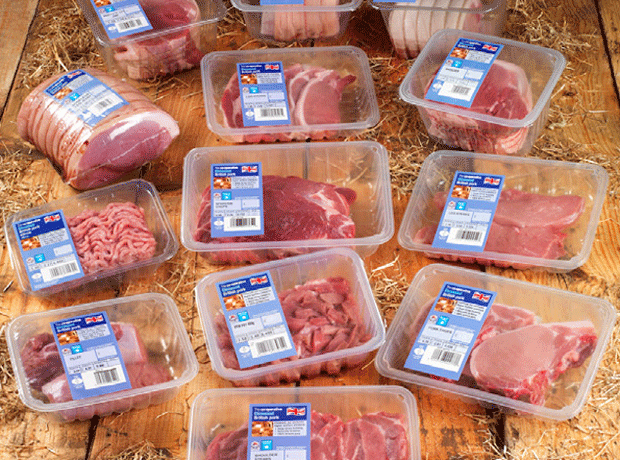
Last week, the Co-op laid down the gauntlet to its rivals by becoming the first national retailer to switch to 100% British-sourced fresh meat. Its commitment - first announced back in September - means all its fresh meat as well as meat used for bacon, sausages and own-label chilled ready meals, pies and sandwiches will now be UK-sourced.
The Co-op’s commitment and call for rival supermarkets to follow its lead were, unsuprisingly, warmly welcomed by British farmers.
But just how easy would it be for rivals to act on the Co-op’s call to switch to 100% British?
As analysis by AHDB reveals (see above), the Co-op was already sourcing mainly British meat even before last week’s move. For other retailers, however, the volumes that would need to be switched over to UK supply would be significant.
The retailers that are currently closest to meeting the Co-op’s goal are Aldi and Lidl, which source all or the vast majority of their beef, lamb, pork and sausages from the UK. They do, however, buy significant proportions of their ham and bacon from overseas, and of course sell much lower volumes than the big four.
For the major mults to go 100% British on all fresh meat would pose significant challenges, says AHDB’s head of trade and product development Mike Whittemore. AHDB’s latest data reveals that, of the big four, only Morrisons, which has its own integrated supply chain, is sourcing all its beef from the UK. It is also the only one to get close to 100% on lamb, at 97%.
The big issue is supply, says Whittemore. The UK is only about 70% self-sufficient in beef and although we are technically self-sufficient in lamb, it’s a seasonal meat, where we export 33% and import 33%. “Fulfilling demand for lamb at peak times with British produce is difficult, that’s why retailers import New Zealand lamb during that period,” Whittemore says.
The situation is even more challenging for pig products. The big four all source less than 53% of their bacon from the UK, while Asda, Morrisons and Tesco source less than 63% of their ham from the UK, according to AHDB’s latest analysis from March.
“So in essence there currently wouldn’t be the capacity to supply everyone,” Whittemore argues. “Looking at the Co-op, it’s a relatively small retailer, and its supply base can handle this type of commitment. But it would be a push if one of the bigger retailers were to make a similar move, particularly in terms of carcase balance.
“Despite improvements in efficiency, there simply isn’t enough supply of British meat to satisfy demand,” Whittemore adds. Unsurprisingly, his argument is echoed by the big supermarkets, who all told The Grocer this week that they were “committed to supporting British farmers”. They all stressed they pursue a policy of stocking British produce first and only using overseas sources to supplement UK production.
Sustainable sourcing
But the NFU maintains more can be done. Simply pointing at a lack of domestic supply won’t do, it argues. If retailers are prepared to work in partnership with farmers, they will be able to get the supply they need.
For example, “there needs to be better connection and better integration” throughout supply chains, says NFU chief food chain adviser Ruth Mason.
“You can improve carcase balance by using unwanted cuts of meats in other products such as ready meals, and that can ultimately cut costs as the processor won’t charge the retailer for the unwanted cuts.”
But there is one drawback, Mason admits. Costs could also go up, particularly on bacon, as the UK pig herd would need to be expanded significantly to meet demand, requiring a lot of upfront investment.
It’s a point echoed by National Pig Association CEO Zoe Davies. But there are nevertheless strong arguments for investing more in UK pork production, she argues, not least because it would ensure higher welfare standards and the livelihood of UK farmers.
“I don’t think we could go 100% British tomorrow but the supermarkets could all do a damn sight better on UK bacon sourcing than they currently do,” Davies says.
If some cost increases are unavoidable, however, the big question is whether consumers would be willing to pay a premium for 100% British. The Co-op clearly feels its commitment to home-reared produce will resonate with its customers. It says they would be “shocked to see how meat imports have grown” - having doubled over the past 20 years, according to government data.
But even the post-Brexit surge in patriotic sentiments has a price limit, according to a Nielsen survey last month. A price premium of 5% for UK produce would see 13% of those consumers who prefer to buy British defect to an equivalent brand from abroad, it found.
A 100% British strategy could also mean consumers lose out on choice - even in more plentiful categories such as lamb. Beef + Lamb New Zealand chairman James Parsons warns lamb prices could go up and quality could decline if rivals were to follow the Co-op, as the UK market alone could not satisfy year-round demand.
If other supermarkets were to cut out New Zealand lamb, for instance, Parsons says much of the shortfall would have to be compensated for with frozen lamb. Retailers would also be forced to sell many previously exported cuts to domestic consumers “who don’t want them”, he adds. “Unless the UK sheep farmer can produce sheep consisting entirely of back legs, they are better off having them come from New Zealand.”
There are similar warnings coming from Ireland, where last week’s announcement by the Co-op prompted the Irish Independent to declare a “Brexit Blockade” of Irish meat on its front page. Behind the scenes, however, many suppliers are more relaxed. There is little chance other retailers will go 100% British, says one industry source, because of long-term supply deals and the nature of integrated cross-border supply chains. Plus, British consumers don’t tend to see Irish meat as ‘foreign’, he adds.
A situation where all meat on supermarket shelves can be 100% British is not looking likely any time soon.







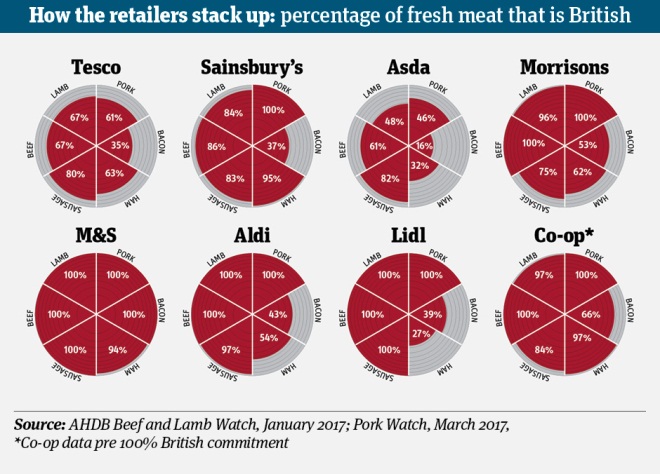
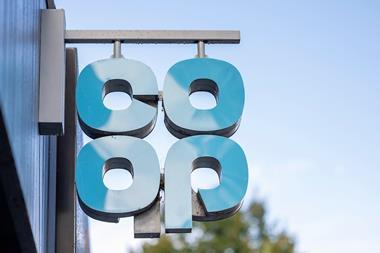
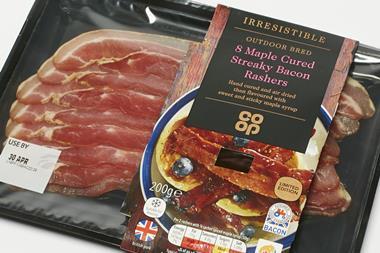
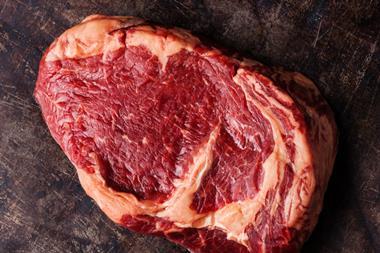
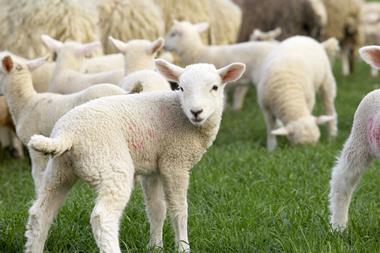
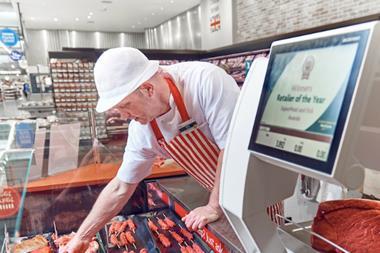
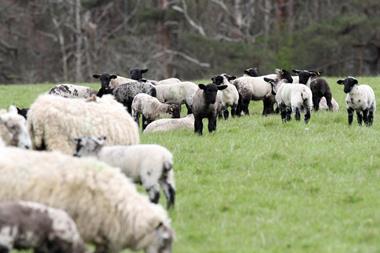






No comments yet